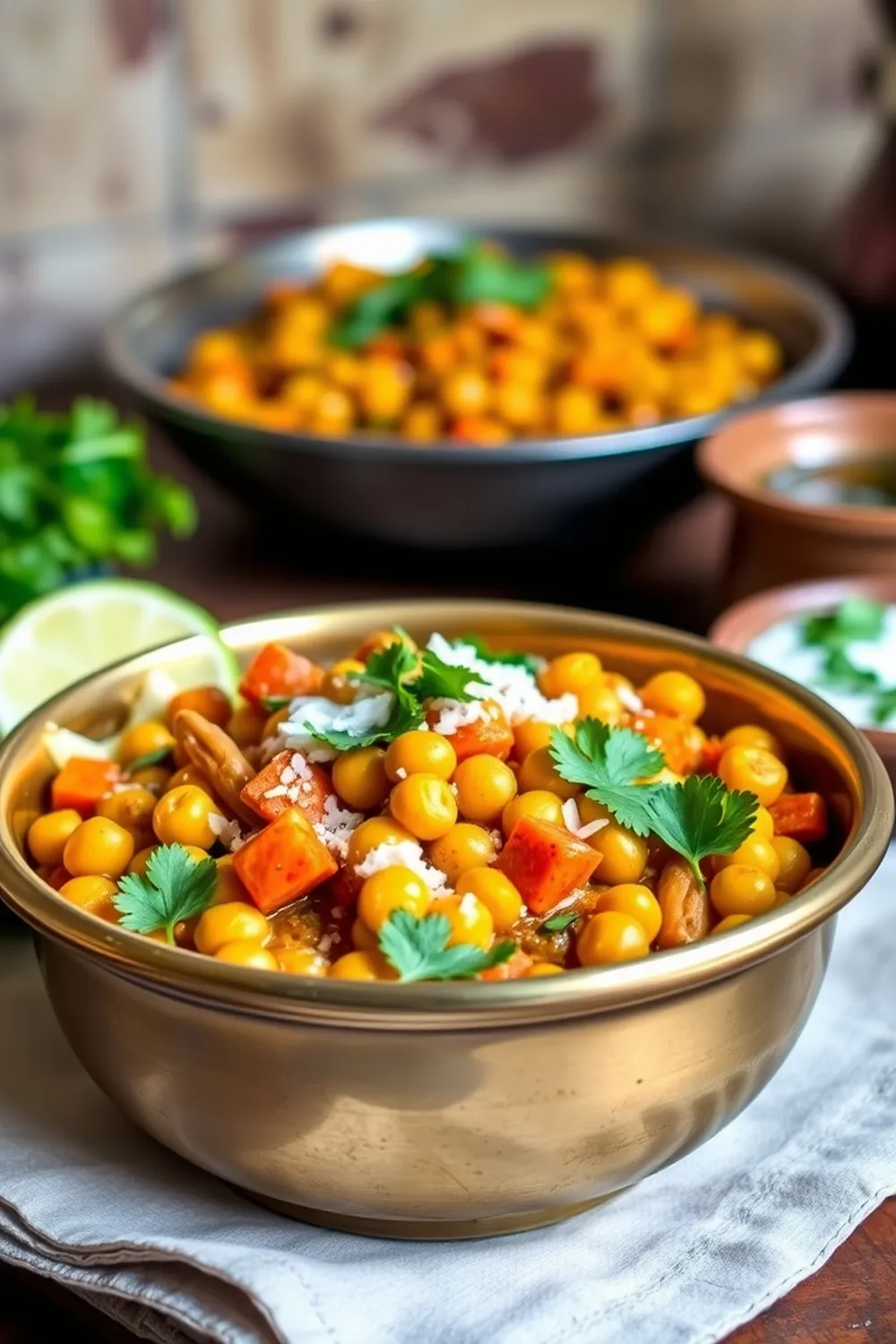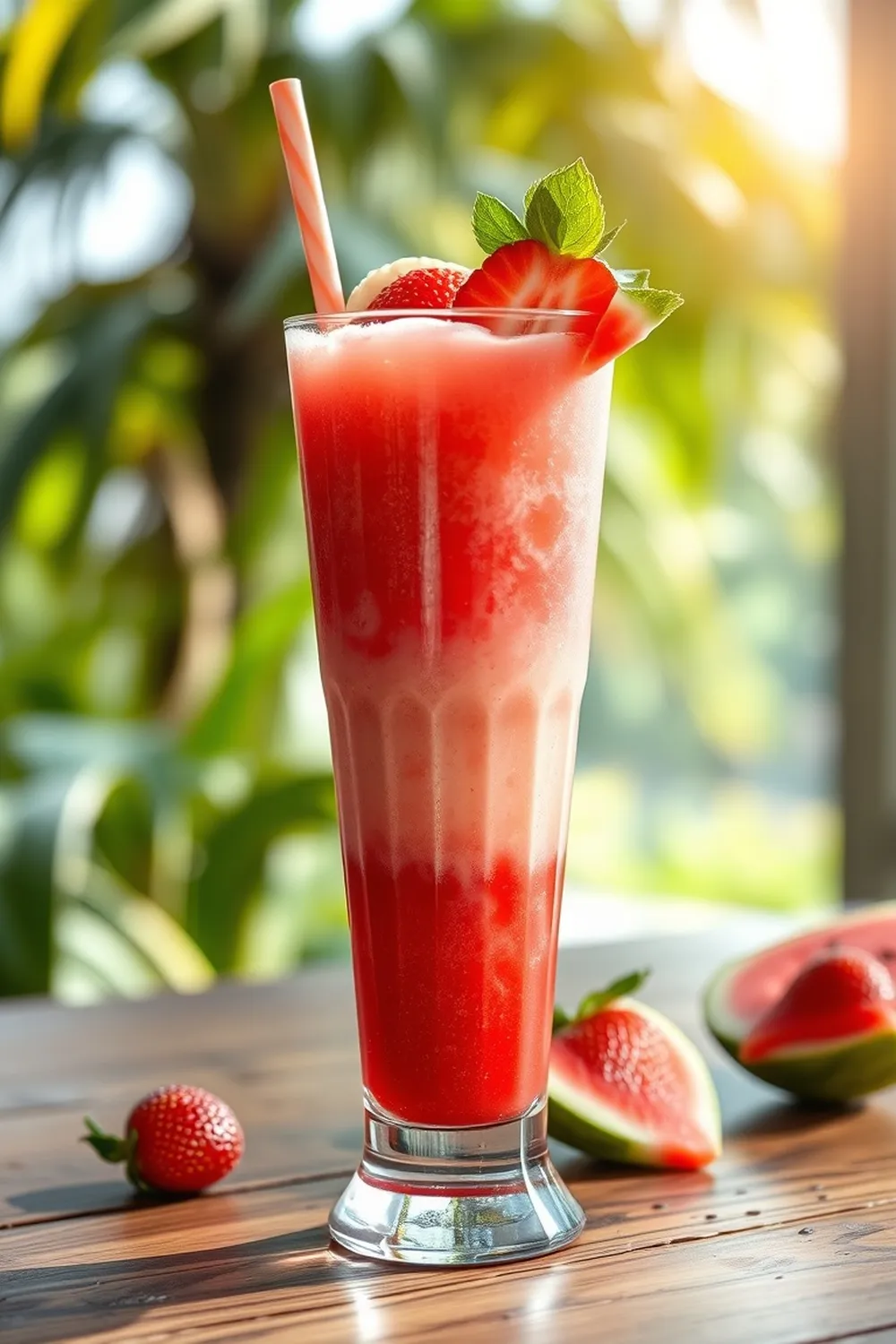- Boil the masoor dal in a pressure cooker with 1.5 cups of water for 10-12 minutes, or until tender.
- Heat sesame oil in a skillet. Add cumin seeds, minced ginger, curry leaves, and dried red chili. Sauté until fragrant.
- Add asafoetida (optional), chopped onions, and salt. Cook until onions turn translucent.
- Blend tomatoes into a puree and add to the skillet. Stir in turmeric powder, chili powder, and jaggery.
- Cover and simmer the tomato mixture on low heat for 15-20 minutes, stirring occasionally to prevent burning.
- Mix the cooked dal into the tomato masala and simmer for 5-10 minutes.
- Garnish with coriander leaves and serve hot with rice and ghee (optional).
- Calories:220 kcal25%
- Energy:920 kJ22%
- Protein:10 g28%
- Carbohydrates:35 mg40%
- Sugar:6 mg8%
- Salt:800 g25%
- Fat:5 g20%
Last Updated on 4 months by Neha Deshmukh
Masoor Dal Recipe – Authentic Red Lentil Curry with Ginger & Curry Leaves
Introduction
There’s just something so comforting about a warm bowl of dal, isn’t there? This Masoor Dal recipe is one I’ve been making for years – it’s a family favorite, and honestly, it’s become my go-to when I need a hug in a bowl. It’s a simple red lentil curry, packed with flavour from ginger, curry leaves, and a touch of sweetness from jaggery. It’s easy enough for a weeknight, but special enough to impress. Let’s get cooking!
Why You’ll Love This Recipe
This Masoor Dal is quick, easy, and incredibly flavorful. It’s a wonderfully nourishing meal, perfect with rice or roti. Plus, it’s naturally gluten-free and can easily be made vegan. It’s a taste of home, and I’m so excited to share it with you.
Ingredients
Here’s what you’ll need to make this delicious Masoor Dal:
- ½ cup masoor dal/red lentil (approx. 100g)
- 1 tablespoon sesame oil (approx. 15ml)
- ½ teaspoon minced ginger (approx. 2.5g)
- ½ teaspoon cumin seeds (approx. 2.5g)
- 2 sprigs curry leaves
- 1 dried red chili
- ¼ teaspoon asafoetida/hing (optional) (approx. 1g)
- 1 medium onion, chopped
- 3 tomatoes, pureed (approx. 300ml)
- ½ teaspoon turmeric powder (approx. 2.5g)
- ½ teaspoon red chili powder (approx. 2.5g)
- 1 teaspoon jaggery or brown sugar (approx. 5g)
- 1 teaspoon salt (approx. 5g)
- 1 tablespoon chopped coriander leaves (approx. 5g)
- 1.5 cups water (approx. 360ml)
Ingredient Notes
Let’s talk ingredients! A few little tips can make all the difference.
Masoor Dal (Red Lentils): Benefits & Selection
Masoor dal, or red lentils, are a fantastic source of protein and fiber. They cook quickly and don’t require soaking, which is a huge win! Look for lentils that are vibrant red and free of any debris.
Sesame Oil: The Traditional Choice
Sesame oil adds a beautiful nutty flavour that’s classic in Indian cooking. Don’t skip it if you can help it! If you don’t have sesame oil, a neutral oil like sunflower or vegetable oil can work in a pinch, but the flavour won’t be quite the same.
Curry Leaves: Fresh vs. Dried & Regional Variations
Fresh curry leaves are the best – they have an incredible aroma. If you can find them, definitely use them! If not, dried curry leaves will work, but use about half the amount as they’re more concentrated. Curry leaf usage varies regionally; some areas use them more generously than others.
Asafoetida (Hing): Understanding This Unique Spice
Asafoetida, or hing, has a pungent smell in its raw form, but it mellows out beautifully when cooked. It adds a savoury, umami flavour to the dal and is often used to aid digestion. It’s optional, but I highly recommend it!
Jaggery: Sweetness & Depth of Flavor
Jaggery adds a lovely caramel-like sweetness that balances the spices. If you can’t find jaggery, brown sugar is a good substitute. You can even use a tiny bit of regular sugar, but jaggery really adds a unique depth.
Step-By-Step Instructions
Alright, let’s get cooking!
- First, rinse the masoor dal under cold water until the water runs clear. Then, add the dal to a pressure cooker with 1.5 cups of water. Pressure cook for about 10 minutes, or until the dal is tender.
- While the dal is cooking, heat the sesame oil in a skillet over medium heat. Add the cumin seeds, minced ginger, curry leaves, and dried red chili. Sauté for a minute or two, until fragrant – you’ll know it’s ready when the cumin seeds start to sizzle.
- Add the asafoetida (if using) and chopped onions. Cook until the onions turn translucent, about 5-7 minutes.
- Blend the tomatoes into a smooth puree. Add the puree to the skillet, along with the turmeric powder, red chili powder, and jaggery. Stir well to combine.
- Cover the skillet and simmer the tomato mixture on low heat for 20 minutes, stirring occasionally to prevent it from sticking. This is where the magic happens – the flavours really meld together.
- Once the dal is cooked, gently mix it into the tomato masala. Simmer for another 1-2 minutes, allowing the flavours to combine.
- Finally, garnish with chopped coriander leaves and serve hot! A little drizzle of ghee is optional, but oh-so-good.
Expert Tips
Here are a few tips to help you make the perfect Masoor Dal:
Achieving the Perfect Dal Consistency
If your dal is too thick, add a little hot water to thin it out. If it’s too thin, simmer it uncovered for a few more minutes to allow some of the liquid to evaporate.
Blooming the Spices for Maximum Flavor
Sautéing the spices in oil (called “blooming”) releases their essential oils, resulting in a more fragrant and flavorful dal. Don’t rush this step!
Preventing the Dal from Sticking & Burning
Stir the dal frequently, especially during the simmering stage. Using a heavy-bottomed skillet also helps prevent sticking.
Using the Right Type of Tomatoes
Ripe, juicy tomatoes are best for this recipe. If you’re using canned tomatoes, opt for whole peeled tomatoes and puree them yourself for the best flavour.
Variations
Want to switch things up? Here are a few ideas:
Vegan Masoor Dal
This recipe is already naturally vegan! Just skip the ghee garnish.
Gluten-Free Masoor Dal
This recipe is naturally gluten-free.
Spice Level Adjustment: Mild to Spicy
Adjust the amount of red chili powder to your liking. Start with ¼ teaspoon for a mild dal, and increase from there.
Festival Adaptations: Serving During Diwali or Other Celebrations
During festivals, I sometimes add a pinch of garam masala for extra warmth and flavour. It’s a lovely touch!
Quick Masoor Dal (Instant Pot Version)
You can easily make this in an Instant Pot! Sauté the spices as directed, then add the dal, tomatoes, and water. Cook on high pressure for 5 minutes, followed by a natural pressure release.
Serving Suggestions
Masoor Dal is incredibly versatile. Here are a few serving ideas:
Rice Pairings: Basmati, Brown Rice, or Jeera Rice
Fluffy basmati rice is a classic pairing. Brown rice adds a nutty flavour and extra fiber. Jeera rice (cumin rice) is another delicious option.
Bread Options: Roti, Naan, or Paratha
Warm roti, naan, or paratha are perfect for scooping up the dal.
Accompaniments: Raita, Salad, or Pickles
A cooling raita (yogurt dip), a fresh salad, or some tangy pickles complete the meal.
Storage Instructions
Refrigerating Leftover Dal
Leftover dal can be stored in an airtight container in the refrigerator for up to 3 days.
Freezing Masoor Dal for Later
Masoor dal freezes beautifully! Store it in an airtight container in the freezer for up to 2 months.
Reheating Instructions
Reheat the dal gently on the stovetop or in the microwave. Add a splash of water if it’s too thick.
FAQs
What is Masoor Dal and is it healthy?
Masoor dal is red lentil, a staple in Indian cuisine. It’s incredibly healthy, packed with protein, fiber, iron, and folate.
Can I use tomato paste instead of fresh tomato puree?
You can, but the flavour won’t be as vibrant. If using tomato paste, use about 2 tablespoons and add a little extra water to thin it out.
What can I substitute for jaggery in this recipe?
Brown sugar is the best substitute for jaggery. You can also use a small amount of regular sugar, but it won’t have the same depth of flavour.
Why is asafoetida (hing) used in Indian cooking?
Asafoetida adds a unique savoury flavour and is believed to aid digestion. It’s often used in lentil dishes.
How do I adjust the spice level of this dal?
Adjust the amount of red chili powder to your liking. Start with a small amount and add more to taste.
Can I make this dal ahead of time?
Yes! Masoor dal actually tastes even better the next day as the flavours meld together. It’s a great make-ahead meal.










